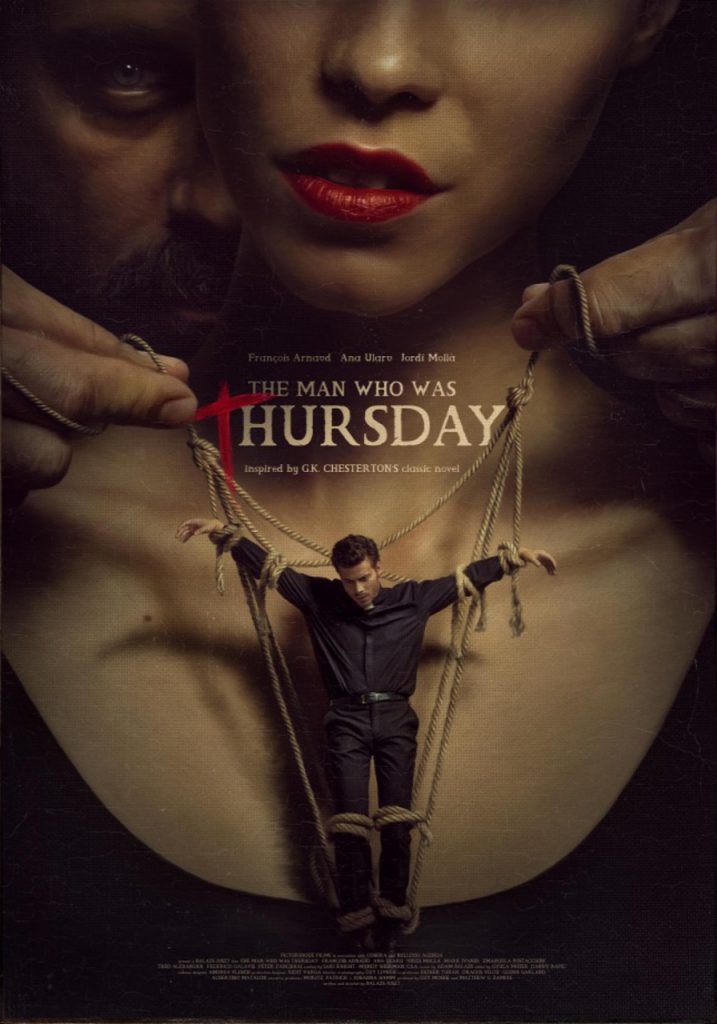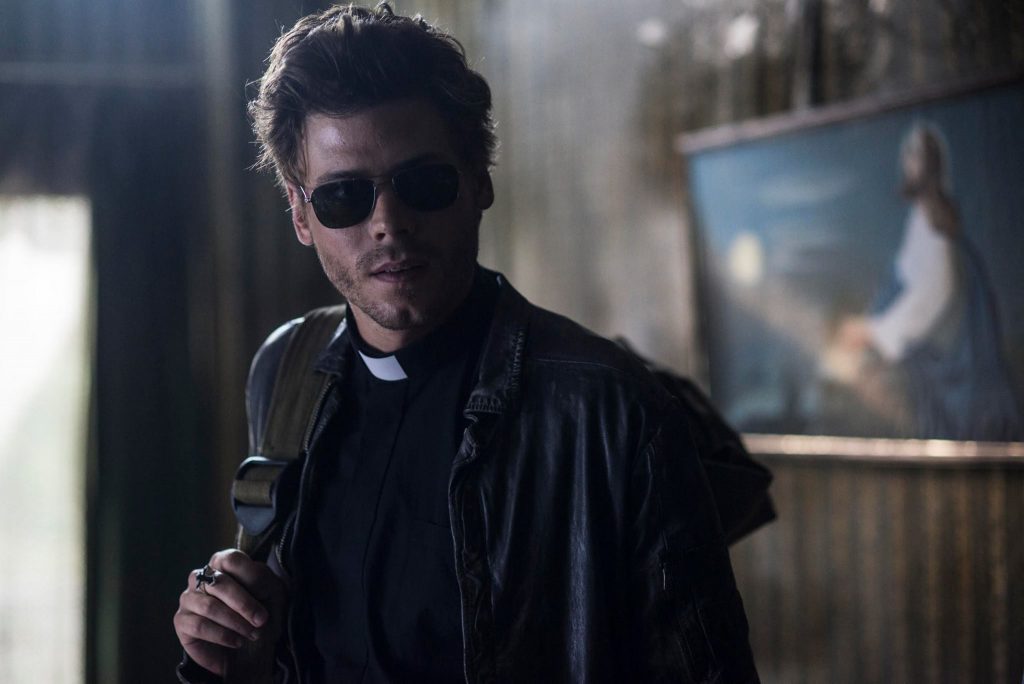

The The Man Who Was Thursday (2015) is Balázs Juszt’s first feature film. The movie opened the Vilmos Zsigmond Film Festival in Szeged, which was named after the world famous cinematographer.
„We know it’s a bold thing that on the first day of the first Vilmos Zsigmond Film Festival we are the opening program, but we are bold.” – said Balázs Juszt, the director and screenwriter of The Man Who Was Thursday, who has now made his first feature film after working in the film industry for many years.
I also could say I am bold, since I’m writing a review on the first film that played at the festival. Of course I’ve written many articles on the subject, but this is my first here at Corn & Soda.
The Hungarian-American-Italian-Romanian co-production is based on G. K. Chesterton’s novel, The Man Who Was Trusday: Nightmare. Although they left out the „Nightmare” part form the movie title, but by watching the story, we can soon figure out that we are indeed in a nightmare. The intense, heightened pace fascinates the viewer from the very first second up until the last one.

François Arnaud acts as the young priest, whose faith was shaken, and he must live with his sins. The dullness of everyday life can only be escaped by the temptations that arise, which you can resist or sometimes let them sink into your soul. Praying in the morning, alcohol, masturbation and absolving others from their sins. The routine is only broken by the prostitute, who comes for confessing her sins, but instead she ends up having sexual intercourse in front of the cross. She is now gratifying her lust at the exact same place, where she used to feed her soul by praying to God. This immorality burns down Father Smith’s soul, and it burns down his church as well.
The nightmare doesn’t end here. He goes to Rome, where he seeks salvation for his troubled soul, but instead of redemption, he finds himself in Rome’s gangland, searching for the leader of an anarchist group as an agent of the Vatican’s secret service. Past and present, fiction and reality blend together. Father Smith, just like the Job of the modern era, lost everything, he is quarreling with God, and he is suffering from the calamities that Satan brought upon him. (Or maybe it’s the other way around? We die for God, or we die, because we worship the Devil?)
The competitive film festival’s first movie proved to be worthy as the festival opener. Balázs Juszt and the film’s cinematographer, Guy Livneh held a round-table discussion on the second day of the festival, where they shared some behind the scenes stories with the movie critics, filmmakers and fans.
The film’s success comes from the perfect harmony between the creators. Balázs and Guy understand each other without words. According to them, when they were talking about shooting the movie, they already saw the same pictures and heard the same music. This harmony and professionalism made it possible to create this movie in just 28 days in Budapest and only 2 days in Rome.
Rating: 95/100
Mafab: 65
IMDB: 6.2/10
* A small behind the scenes story:
Since the movie is pushing the boundaries, and it shows religion in a quite harsh manner, the crew had to lie their way into Vatican City. They told they were making a documentary, because if they had told them the truth, they would never have gotten the permission to shoot there. Of course they never got the permission, so they had to sneak in the cameras in their backpacks.


